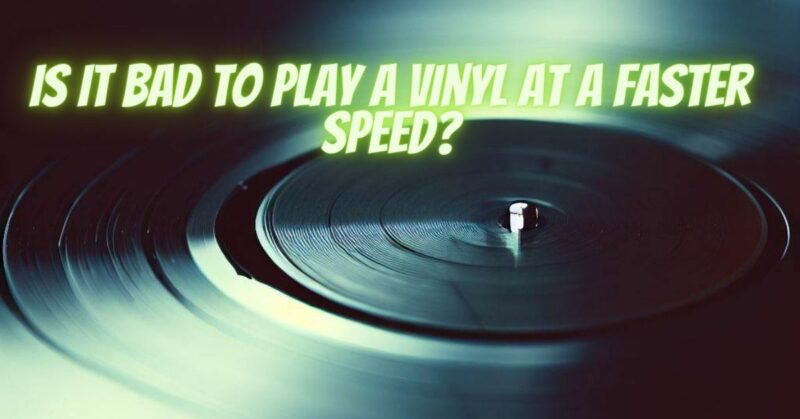Playing a vinyl at a faster speed than it is intended to be played can damage the record and the stylus. The stylus is a needle that sits in the groove of the record and reads the music. When the record is played at a faster speed, the stylus has to move faster to keep up, which can cause it to wear out prematurely. The record can also be damaged if it is played at a faster speed, as the grooves can become warped or damaged.
The speed at which a vinyl record is played is measured in revolutions per minute (RPM). The most common speeds for vinyl records are 33 1/3 RPM, 45 RPM, and 78 RPM. Some records may also be played at 16 RPM or 8 RPM.
If you are unsure of the correct speed to play a vinyl record, you can usually find the information on the record label. If you cannot find the information on the label, you can consult the record’s liner notes or the manufacturer’s website.
If you accidentally play a vinyl record at a faster speed, you should stop the record immediately. You should also clean the record and the stylus to remove any debris that may have been created by the faster speed.
To prevent damage to your records and stylus, it is important to always play them at the correct speed. If you are not sure what the correct speed is, it is always best to err on the side of caution and play the record at a slower speed.
Here are some additional things to keep in mind:
- The type of record can also affect the correct speed. For example, 78 RPM records are typically played at a faster speed than 33 1/3 RPM records.
- The age of the record can also affect the correct speed. Older records may need to be played at a slower speed due to wear and tear.
- The condition of the record can also affect the correct speed. Records that are dirty or scratched may need to be played at a slower speed to prevent damage.
If you are concerned about playing your records at the correct speed, you can consult a qualified technician or record store. They can help you determine the correct speed for your records and provide tips on how to prevent damage.


